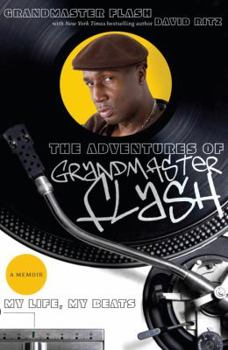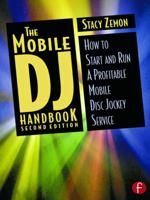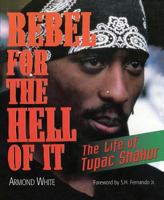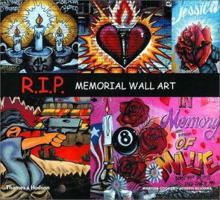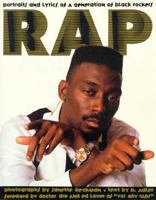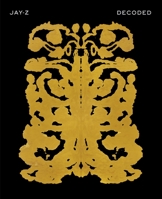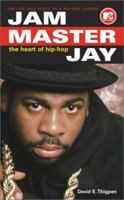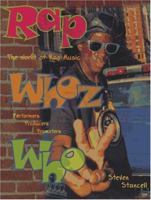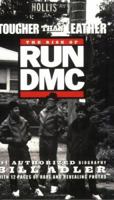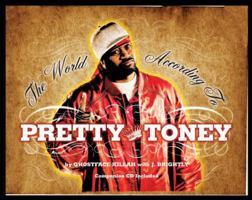The Adventures of Grandmaster Flash: My Life, My Beats
Select Format
Select Condition 
You Might Also Enjoy
Book Overview
Customer Reviews
Rated 4 starsHip Hop Ya Don't Stop
Grand Master Flash laid a foundation for Hip-Hop DJ's today. Of course there was Kool Herc and others, but Flash took it to the next level by putting rappers and breakers on the map. I always said a rapper is nothing without a good DJ and in his autobiography Flash actually educates inspiring DJ's unwillingly not just on how to spin records but he tells you what sounds good and what doesn't and how to keep the crowds moving...
0Report
Rated 4 stars.....
It's a good book. At times when I read this book it made me realize that it really isn't 100% about hip hop, but about a man's struggle. How everyone's life can go zig zag zig... forward, back and hopefully forward again. It shed light on a few things for me: Like why Flash has such an articulate vernacular (read, nerdy sounding speech), whether all the rumors of him hitting rock bottom were true or not, & how he had...
0Report
Rated 4 starsDope book from a producer who worked with Flash
This book is killer and yes there is some missing data but who cares. What makes me sad is the simple fact that it is NOT gracing the chains of Americas Books stores. The clueless idiots wouldn't be able to grasp how profound a character GM Flash is. Sadly they need more shelf space for another yet to be published WHO KILLED TUPAC Book Freddy Fresh Author of Freddy Fresh Presents The Rap Records and DJ/Artist Producer of...
0Report
Rated 4 starsThe Rise and Fall and Rebirth of Grandmaster Flash
Over the last five years or so, as hip hop culture has moved into its third decade, there have been more and more books published about its early days. Books like Yes Yes Y'All and Can't Stop Won't Stop have sought to trace the development of b-boying, DJing, MCing, and graffiti from their disparate origins in the early 1970s into the unified "street" culture and big business hip hop has become. This autobiography by one hip...
0Report
Rated 4 starsFlash is one of my heros, and I bought this on its day of release
I just finished reading Flash's book. Let me start off by saying Flash has always been one of my heros, not just in Hip-hop -- but in a life. Out of all the Hip-Hop figures I would read about I felt like I had something in common with him. I grew up a nerdy kid who dabbled with computers and Radio Shack electronics sets. I remember fixing my portable tape player at the age of 4 or 5, because my dad wasn't home to open...
0Report










